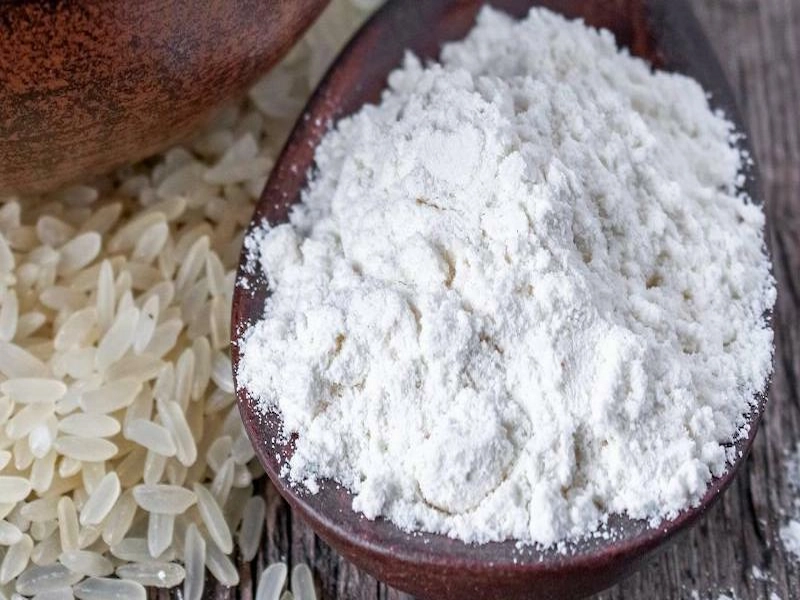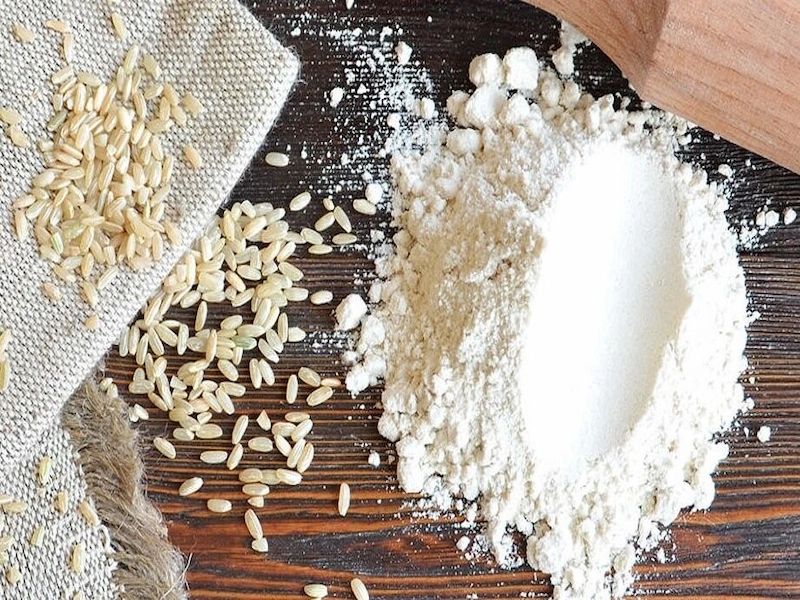Rice flour is one of the flours out there that is widely used to prepare sweets and some foods. In order to know whether this flour is fattening or not, you need to get familiar with the concept of food fattening. That is to know how food can make our body fat and why some of them are more fattening than others.

Get help from the best slimming specialist in Tehran for advice in this field.
Fattening property of food
To better understand the concept of the fattening properties of foods, let’s think of the energy you take in and burn as similar to the money you earn and spend. In this example, the number of calories you consume during the day is equal to the money you earn, and the calories you burn in daily activities, exercise, etc., is equal to the money you spend.
Now suppose that your income exceeds your expenses. What happens then? Yes! You can save some money, and on the other hand, if your income is less than your expenses, you may have to sell some of your possessions to pay for essential expenses.
This is what happens in the body. When you consume more calories than you need, the excess is stored as fat, and on the other hand, if your calorie intake is less than your energy expenditure, stored fat is burned.
With this introduction, we go to the fattening properties of foods.
Each food item has different energy, or in other words, it is synonymous with a certain amount of money. For example, a magnum ice cream (those which are dipped in truffle chocolate) has 300 calories, but an apple has 60 calories. Therefore, your energy income from ice cream will be higher than from apples, and if you can’t burn it, or in other words, spend it, it will be stored as fat. Unfortunately, saving fat is not as enjoyable as saving money, and spending it is not as easy as spending savings.
In the meantime, rice flour is considered a food item that provides a certain amount of fattening or energy.
Read more: All about weight loss surgery
How fattening is rice flour?
The fattening effect of rice flour is almost similar to other flours such as wheat or barley flour. This flour contains about 360 kcal of energy per 100 grams, and the foods that are cooked using it contain this amount of energy in addition to the energy of other nutrients such as oil, sugar, etc., which are used in their cooking.
With these explanations, we cannot answer the question of whether rice flour is fattening or not with a simple “yes” or “no”. Rather, the answer depends on how much you consume this food, other ingredients in food cooked with rice flour, and other things you eat throughout the day.
If you use rice flour in moderation and the foods you cook with it do not contain a lot of fat or sugar, this flour will not have much effect on your obesity. But if you use it with large amounts of sugar and oil in sweets, it will gradually make you fat.
Also it is important to consider that in Iranian traditional medicine rice and rice flour are considered substances which has the variable temperaments from person to person that is it might be good to an individual and at the very same time harmful to other one .
What is important is that it cannot be said that rice flour is more fattening than wheat flour. However, it is important that this flour is usually used in foods and sweets that are fatty and sweet, while wheat flour is not. This is the reason why we can say that rice flour may be more fattening than wheat flour in the composition of cooked foods. For example, foods cooked with this flour include rice milk, rice bread, and some other types of sweets, all of which contain oil and sugar.

Conclusion
Rice flour calories are similar to wheat and barley flour. The fattening of this flour has a direct dependence on its consumption, fat and sweetness in the food cooked with this type of flour, as well as other food items that you consume during the day. In other words, the answer to the question of whether rice flour is fattening or not is neither yes nor no.
Rice flour can result in weight gain if consumed in excess however, the same can be said for any other type of food or flour. Rice flour alone will not result in weight gain. If consumed in moderation then it will not result in weight gain.



